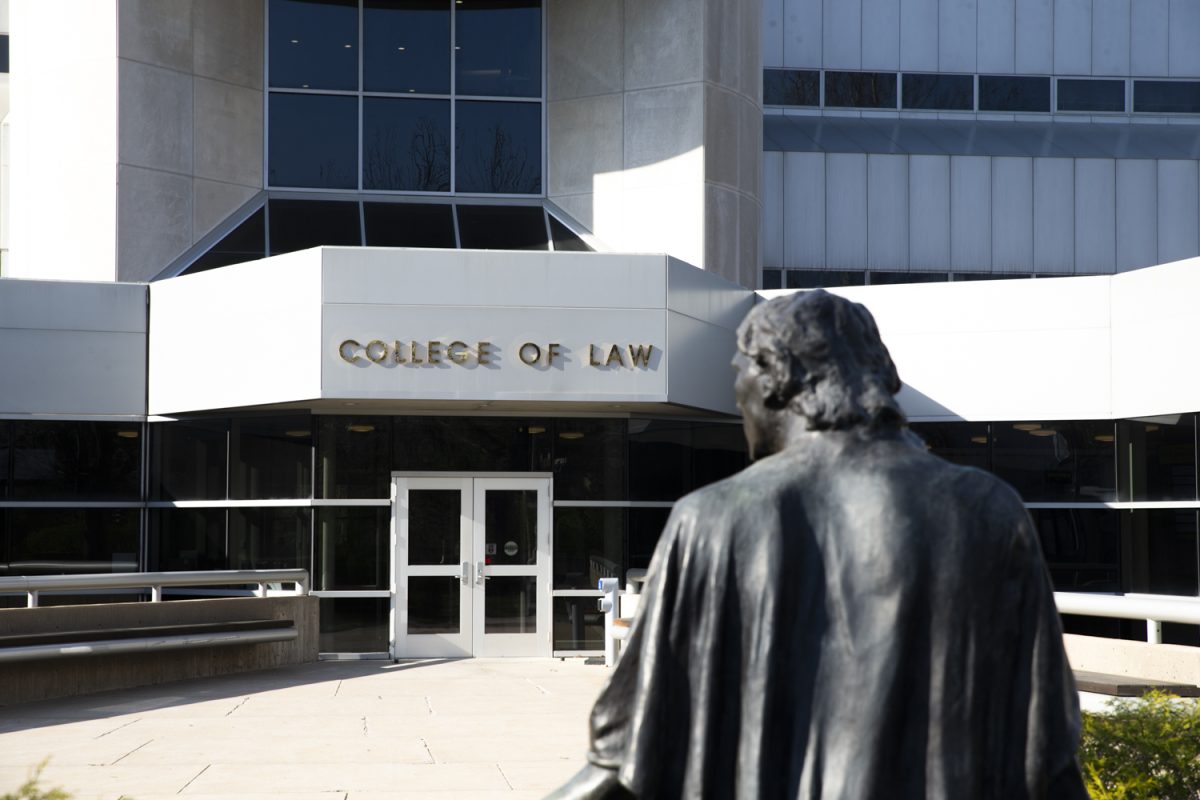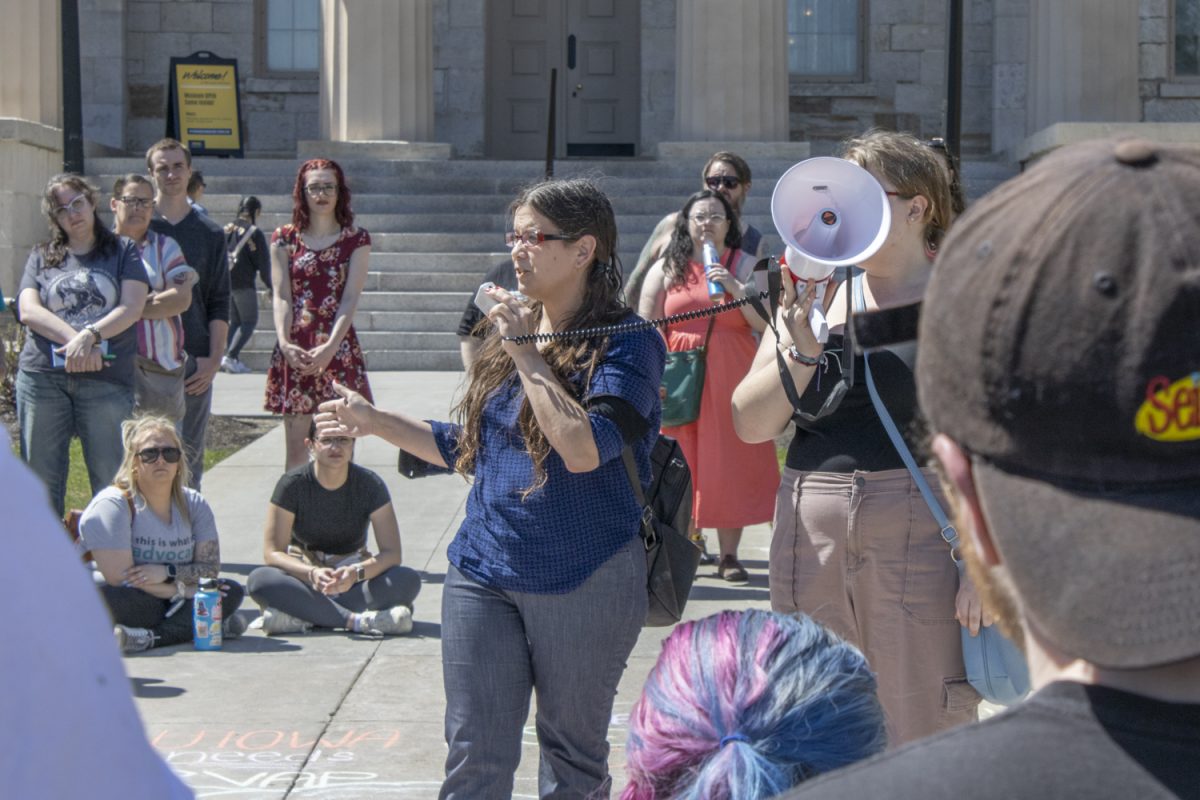John Lawrence, an associate professor of surgery at the University of Vermont and former faculty member of the University of Iowa, spoke on the grave humanitarian needs of people around the world — particularly in Syria — at a lecture Wednesday evening.
The Students for Human Rights organization on campus sponsored the lecture. Along with serving as a faculty member at the UI and the University of Vermont, Lawrence has also spent a considerable amount of time working with Doctors Without Borders.
Lawrence had performed six surgical missions in various countries with the Doctors Without Borders organization prior to his recent visit to Syria.
“I’ve had a long-standing interest in global health,” Lawrence said. “And early in my effort to try to get exposure and experience to working overseas and hopefully be providing something that would qualify as a benefit for the individuals I was serving, I took numerous trips to a whole variety of different countries.”
Lawrence described experience with patients whose families were forced to pay out of pocket for antibiotics and hospitals that did not have the necessary medicine for their patients.
“It left me with a mixed sentiment,” Lawrence said. “Ethically, does that make sense to proceeding along and be doing things that I might consider substandard when my intent was to hopefully be providing care in a very positive, proactive, and state-of-the-art setting?”
Lawrence said based on some of his experience, he gained a specific interest in working with Doctors Without Borders.
Lawrence said Syria’s needs are grave as the government has targeted medical facilities and workers, resulting in 60 percent of the public hospitals being damaged or destroyed. He also added that many health-care workers, such as physicians and nurses, have fled the country because of this.
Doctors Without Borders is staffing six hospitals and four clinics in Syria, as well as providing supplies to 27 hospitals and 56 clinics. Many of these hospitals and clinics are located in the rebel territory of Syria.
The hospital in which Lawrence worked mainly oversaw burn care with an open door policy. Lawrence said that the staff saw many children from refugee camps with splash burns or boiling water burns, but that there would be several occasions where a boy within the ages of 15-35 years old would come in after being involved in obvious military activity.
Lawrence emphasized that while Syria is in need of humanitarian aid, it is not the only country that requires U.S. attention.
“Syria has gotten a tremendous amount of publicity recently, and justifiably so, but there are probably about 500,000 deaths a year still from rebel activity, and it’s one of those things that you just don’t even hear about,” he said, in reference to his work in the Congo.
Lawrence said it was not required for a person to have medical experience to help with the Doctors Without Borders group and that there were many different ways to pitch in.
“I liked that he incorporated so much information about [Doctors Without Borders],” said Heidi Brown, a UI who attended the presentation. “We can all help and you don’t have to have medical experience to help and volunteer with this program and help those who are struggling.”
UI graduate student Hunter Terry was particularly impressed with Lawrence’s stories of his travels.
“I think he did a great job summing up not only the medical experience, but the personal experience of working with Doctors Without Borders,” she said.






